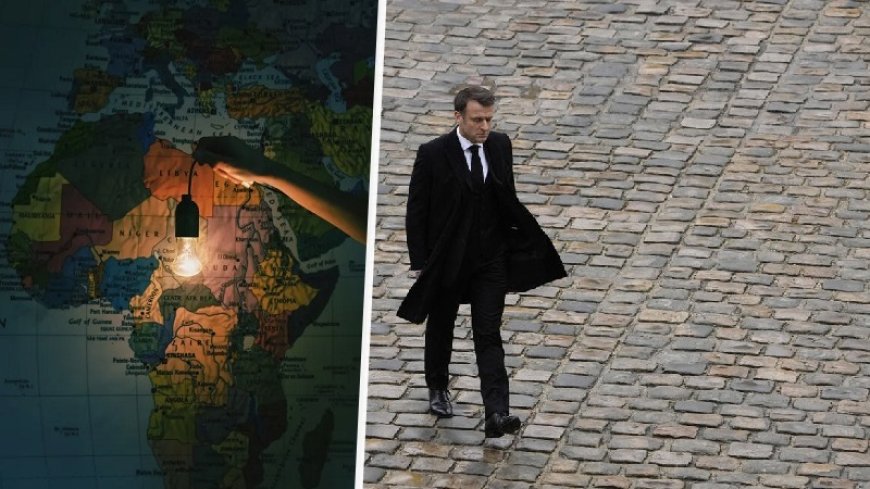The President of Côte d'Ivoire has declared the withdrawal of French military forces
The ongoing trend of the expulsion of French military personnel from African nations persists, with Ivory Coast emerging as the most recent country to declare its intention to withdraw French forces. Ivorian President Alassane Ouattara has affirmed that French military forces will withdraw by February 20, 2025, signifying a notable advancement in the continent's pursuit of enhanced autonomy. "We take pride in our modernized army, and it is within this context that we have resolved to implement a coordinated and systematic withdrawal of French troops," stated Ouattara.

The ongoing trend of the expulsion of French military personnel from African nations persists, with Ivory Coast emerging as the most recent country to declare its intention to withdraw French forces. Ivorian President Alassane Ouattara has affirmed that French military forces will withdraw by February 20, 2025, signifying a notable advancement in the continent's pursuit of enhanced autonomy. "We take pride in our modernized army, and it is within this context that we have resolved to implement a coordinated and systematic withdrawal of French troops," stated Ouattara.
The French military's presence in Africa has been enduring, particularly within the Sahelian nations of Mali, Niger, Chad, and Burkina Faso. For several decades, France has exerted influence over numerous African nations, citing security concerns and the combat against terrorism as rationales for its military presence. Nevertheless, the increasing political consciousness and social transformations throughout the continent have instigated a transition, whereby a greater number of African nations are rejecting external influence and endeavoring to reclaim their sovereignty.
The expulsion of French military personnel commenced in Mali and has progressively extended throughout the region over the past year, obtaining traction in nations such as Burkina Faso, Niger, Chad, and most recently, Ivory Coast. This action signifies not merely a repudiation of foreign military presence but also a more extensive endeavor to assert national sovereignty and independence. African nations, having experienced the ramifications of colonialism and its attendant hardships, are increasingly prioritizing growth and development independent of external influences.
Abdramane Koulamalla, Chad's Minister of Foreign Affairs, recently underscored the necessity for France to demonstrate respect for the people of Africa. He asserted that French leaders must recognize the necessity of respecting the people of Africa. The sentiments express a rising discontent with France's colonial policies, which are increasingly perceived as impediments to the autonomy of African nations.
As President Macron recognized, "Africa is undergoing transformation due to the evolving dynamics of public opinion and governmental structures." French policies, which were previously regarded as essential by Paris, are now encountering opposition throughout the continent. The withdrawal of French military forces is indicative of a larger movement towards autonomy, as African nations increasingly assert their rights to shape their own destinies.
This transition was underscored by the Austrian Institute for International Affairs, which observed that the expulsion of French military personnel signifies a more extensive trend towards prioritizing national sovereignty. Djennabo Cissé, a research fellow at the Foundation for Strategic Studies, remarked that France's military presence in Africa has historically epitomized its physical power, serving as a symbol of influence that is now diminishing across the continent.
The resurgence of African society, particularly among its young, is also driving this transformation. As reported by the Swiss French-language publication Le Temps, the continent's swift political and social transformations are redefining global perceptions of Africa. The youth are advocating for an increased democratic framework and a more equitable allocation of the continent's abundant resources, rather than permitting Western powers to exploit wealth to the detriment of African nations.
As Ivory Coast joins the increasing number of nations expelling French military forces, the message is unequivocal: Africa is affirming its autonomy and is no longer willing to endure the vestiges of colonialism, which include the presence of foreign military personnel. This signifies the commencement of a new epoch for the continent, during which African nations endeavor to establish their own trajectory within the global framework.













































